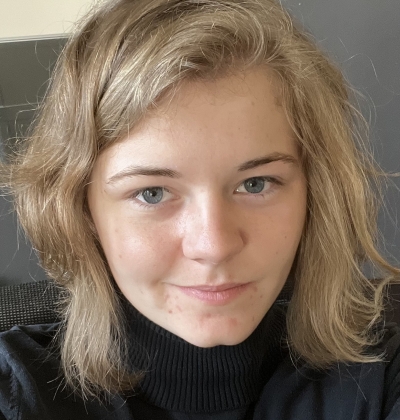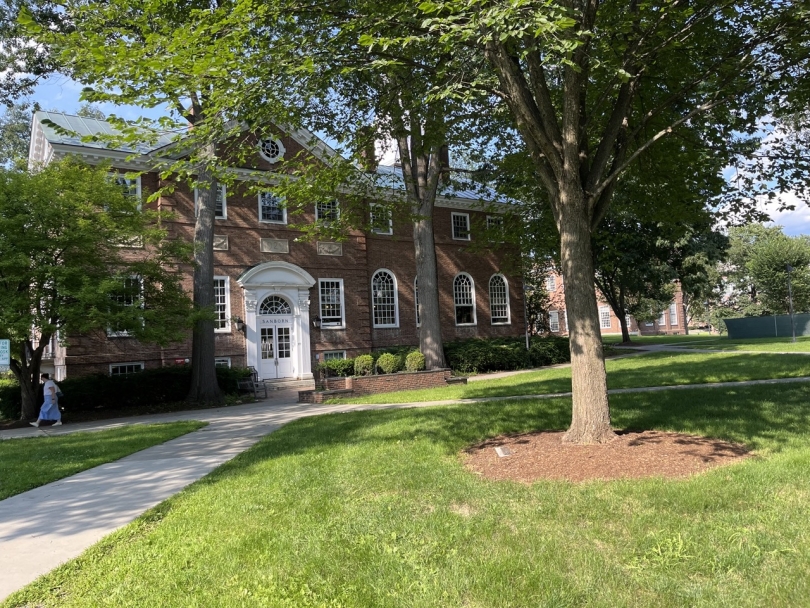
Creative Writing at Dartmouth
Dartmouth does not offer a creative writing major; instead, students majoring in English can add a concentration in creative writing. But you don't need to be an English major to take creative writing classes. In classic Dartmouth fashion, the students in our creative writing classes major in everything from government to economics to biology.
I'm an English major, and I've also taken two fiction writing classes here—Intermediate Fiction (with Professor Thomas O'Malley) and Writing for TV (with Professor Eugenie Carabatsos). Both were GREAT! I'm also registered for Writing for the Screen I in fall term 2023 with Professor William Phillips. Needless to say, I love fiction writing and think Dartmouth's an excellent place to hone your craft.
Almost all creative writing classes here are workshop-based, meaning we write a lot and give our finished work or excerpts to our classmates. Then our classmates comment on the pieces. In Intermediate Fiction and Writing for TV alike, we did several rounds of workshop for each person. I've found this to be extremely helpful at Dartmouth, because the students are both engaged and intelligent. My classmates have produced some fantastic pieces I've enjoyed reading, and they've also given me invaluable feedback. The same is true of professors—in any class that involves writing of any kind, I've been able to get helpful, detailed feedback on my essays and fiction pieces alike.
Intermediate Fiction was a class of about eight. We were asked to apply to the class; normally, you'd also need to have taken Introductory Fiction prior, but in my year, the professor allowed myself and a few other students with experience and sufficient samples to skip Intro and enroll directly in Intermediate. Once we got into the class, we were immediately writing, writing, writing. Even scarier, our classmates read our work and gave us constructive criticism several times that term. Some students presented new pieces each workshop; others would return with revised versions of pieces; still others, like myself, gave the workshop group excerpts of a larger story.
Writing for Television was nearly as small, with an enrollment of about fourteen. We pitched our TV show ideas, read pilot scripts and show bibles, and wrote our own. Professor Carabatsos has written professionally for TV, so she was able to give us helpful information about the industry and what producers are looking for in a pitch or show, as well as tried and true screenwriting methods. Unlike Intermediate Fiction, we all workshopped the same pieces several times, which meant we got to thoroughly polish our show pilots. I cannot explain to you how fun it was to not only create my own TV show idea, but also to read what my classmates came up with.
I've become a much better writer while at Dartmouth. For me this has mainly been through classes, but we also have several literary magazines and writing clubs—off the top of my head, a friend of mine has just started Spilled Ink, a poetry club; we have a literary magazine called Stonefence; we have several undergraduate-run academic journals like Memento and the undergraduate history journal; we also have a book club! There are far more creative writers of all stripes at Dartmouth than I expected, and we have classes and extracurriculars to accommodate them all.




















